Humidifiers greatly help improve a baby's health and condition, especially during cold weather. But you might be wondering how far the humidifier should be from your baby. Please don't fret, as we brought the answer straight from medical experts.
Humidifiers should be at least three feet away from the bed and the baby. This prevents mold growth and keeps the moisture away from the baby. Furthermore, place the humidifier somewhere that's out of the baby's reach to avoid accidents.
With the main question in your mind answered, there should be plenty more that you want to ask. Don't worry because, in this article, we will discuss the answers and more. This is so your baby would grow up in a healthy and safe environment.
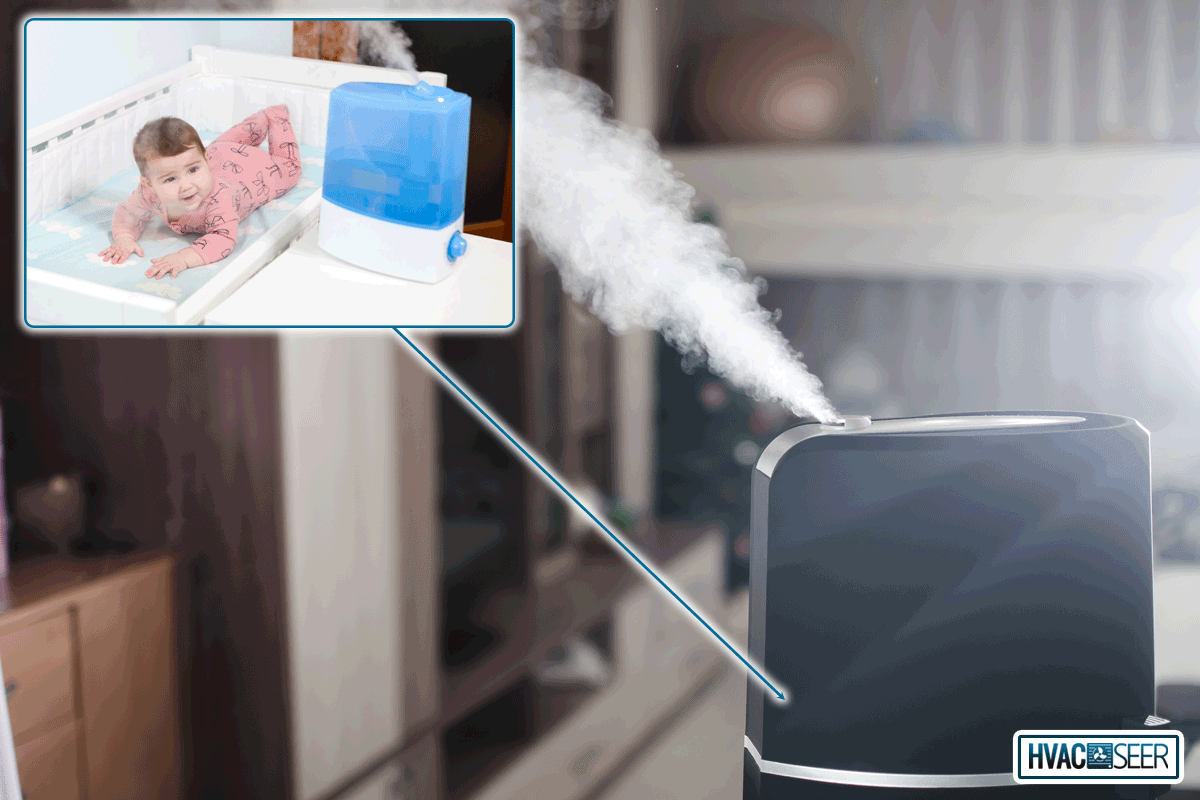
How Far Should A Humidifier Be From The Baby?
As stated earlier, a humidifier should be placed at least three feet away from the baby. This is to ensure that the baby will not be able to reach it and that the bed will not get wet.
Additionally, keep the humidifier away from nearby outlets. Since a humidifier regularly spews out moisture, the last thing a parent would want is for it to land on an outlet and cause an electrical discharge.
Placing the humidifier on top of a shelf or a cabinet will help keep it away from the baby and prevent moisture from entering the electrical sockets.
Alternatively, using an outlet cover gives added security as well. This also provides added protection to babies, especially when they start crawling around and poking their fingers into many things.
Check this electrical outlet cover on Amazon.
Does A Baby Need a Humidifier?
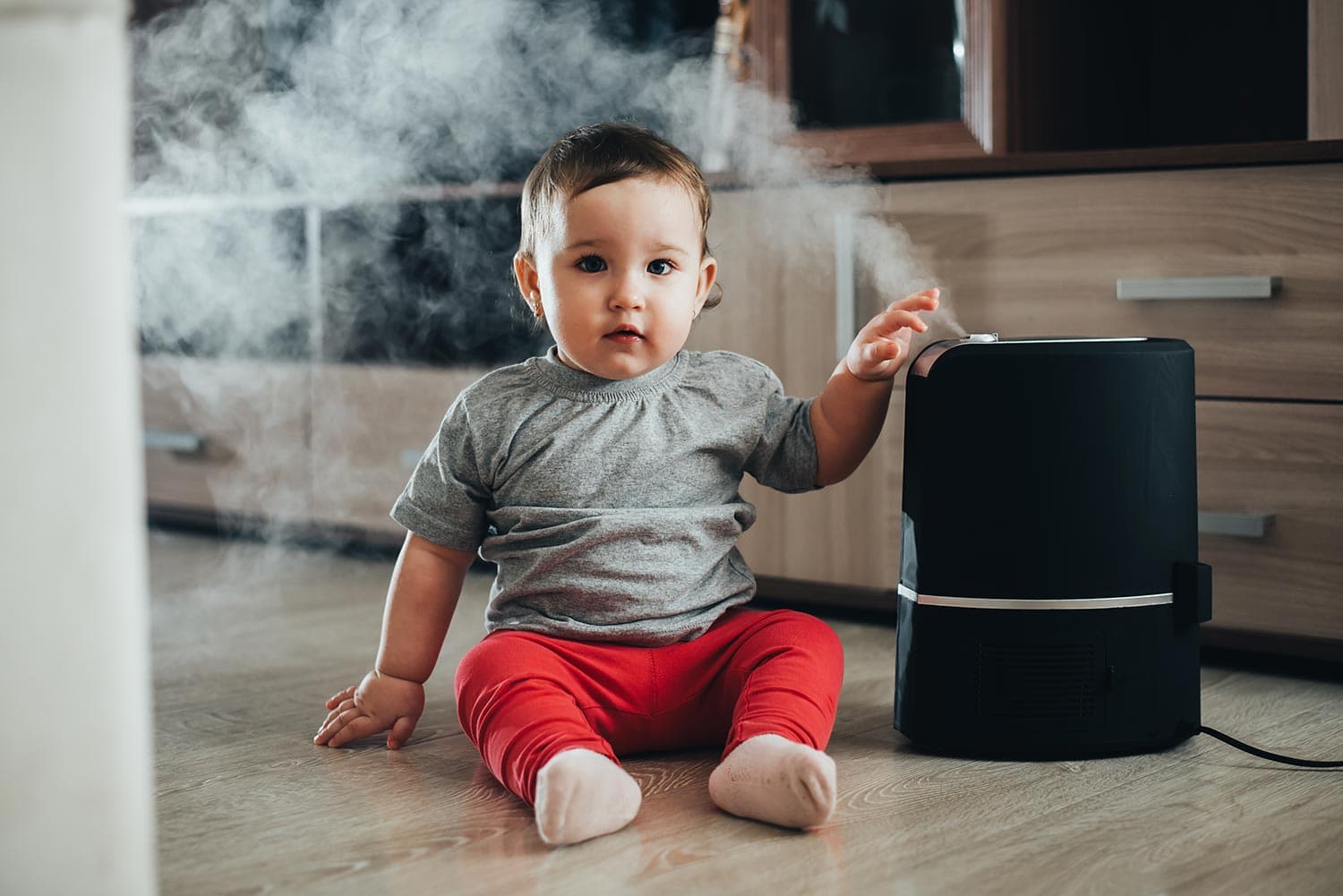
Before we further discuss the best place to put a humidifier inside a baby's room, we must first learn whether or not the baby needs one in the first place. And many medical experts agree that babies would greatly benefit from having a humidifier inside the room.
The reason for this is that humidifiers keep the air from going dry. What this means is that there's more moisture to be found in the air. And each time the baby breathes this air in, it helps prevent respiratory infections and alleviate the sticky mucus in their nasal passages.
In doing so, this makes it easier for the baby to breathe. This then leads to the baby having a good night's sleep which equates to more resting for you.
It's also been proven that many babies enjoy the comforting sound that humidifiers make each time they spew moisture into the air.
So the short answer to whether or not babies need a humidifier is yes. While having one at home is not required, a humidifier's benefits can't be ignored. Additionally, giving the baby a good night's sleep isn't all a humidifier is good for, as we will soon find out.
Benefits Of Using A Humidifier
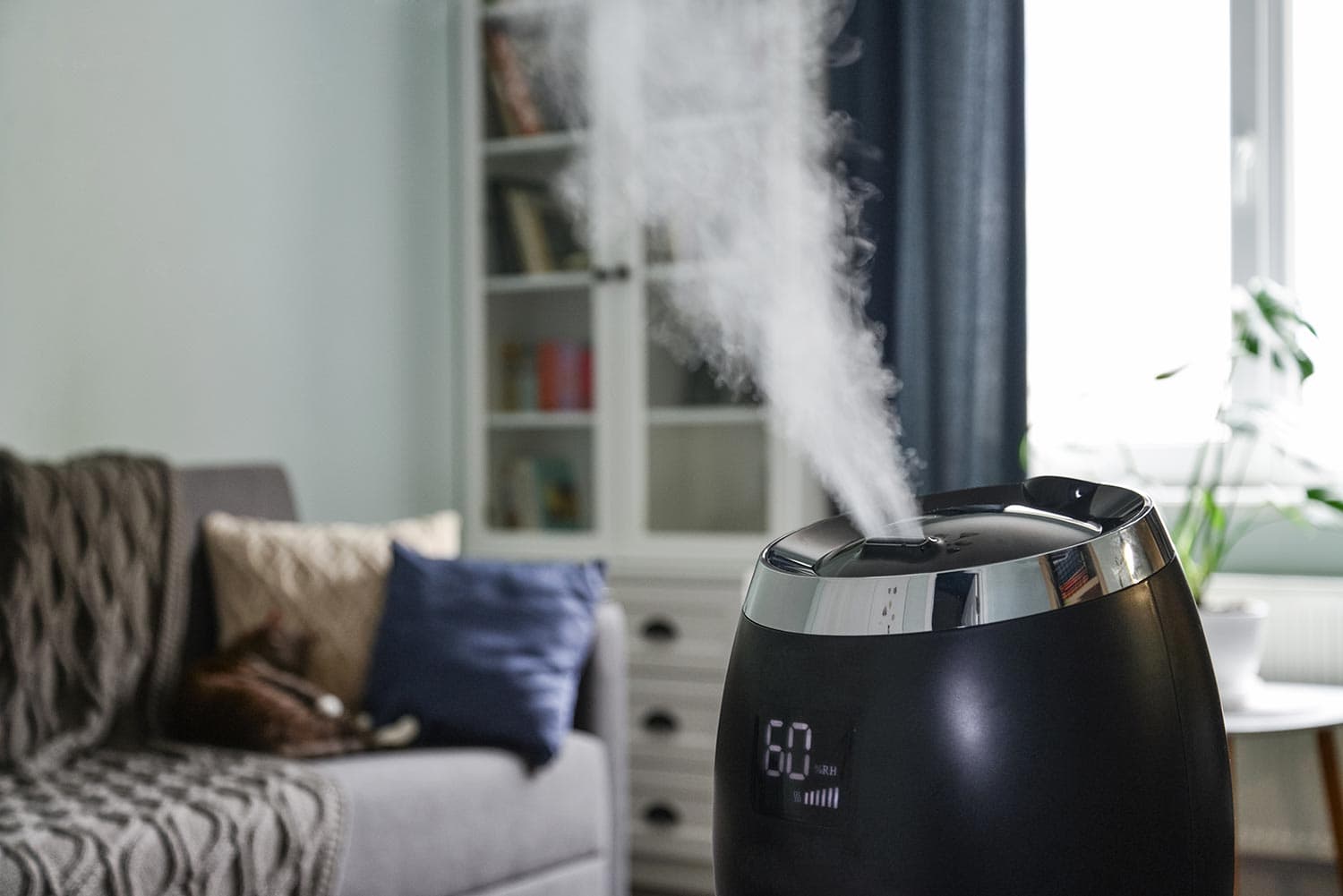
As mentioned earlier, a humidifier can significantly help a baby get a good night's sleep due to easy breathing and the sounds it makes. However, that's not all a humidifier is good for. This section will discuss a humidifier's benefits to a baby.
Alleviates Nasal Congestion
Babies are sensitive when it comes to the air they breathe. That's because their respiratory system is still adapting to the outside world after spending months inside a mother's womb. So, their noses are often stuffy and full of mucus, making it hard for them to breathe.
Most people recognize this whenever babies make this noisy sniffling each time they breathe. And when that happens, the baby will start to cry because they're having difficulty breathing through the nose.
Keeping a humidifier nearby prevents the baby from having a stuffy nose, especially during cold weather when the air is noticeably less humid. This results in the baby being more relaxed and comfortable and able to sleep peacefully inside the nursery.
Prevents Dry Skin And Eczema
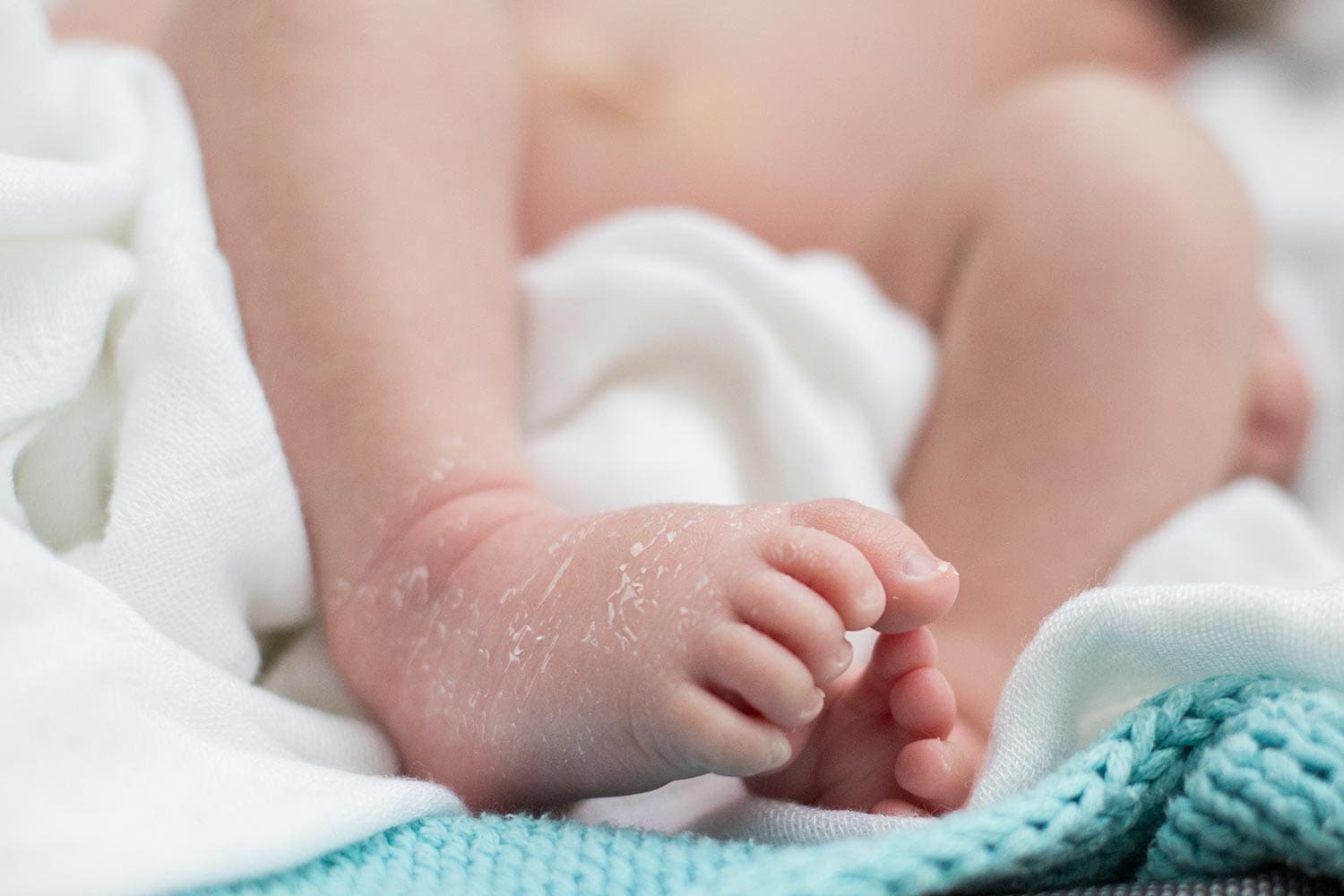
As we all know, babies are susceptible to their environment. As such, it is no surprise that a baby's skin, in particular, is prone to dryness, irritation, and redness. And in most cases, this leads to a baby developing eczema.
Eczema is a prevalent skin condition that typically starts during infancy and can persist into adulthood. This condition is often described as the skin being itchy, red, and dry. And because external irritants usually trigger this, most babies suffer greatly from this condition.
Keeping a humidifier nearby not only helps keep the baby's skin from going dry because of all the moisture in the air, but it also helps keep their skin supple and smooth. This way, your baby doesn't feel itchy and irritated all the time.
Reduces The Chances Of Getting Sick
While it's impossible to prevent a baby from getting sick completely, there are ways to help lessen the chance of them feeling ill. And one way to do that is by placing a humidifier inside the nursery.
Studies have shown that increased humidity helps reduce the survival rate of airborne bacteria, thereby decreasing the chance of someone becoming sick. Also, increased humidity can help a body's immune system react faster to airborne pathogens.
With a humidifier in the room, there will be less of a chance of your baby getting sick. And for a parent, that's great news.
Where To Place A Humidifier?
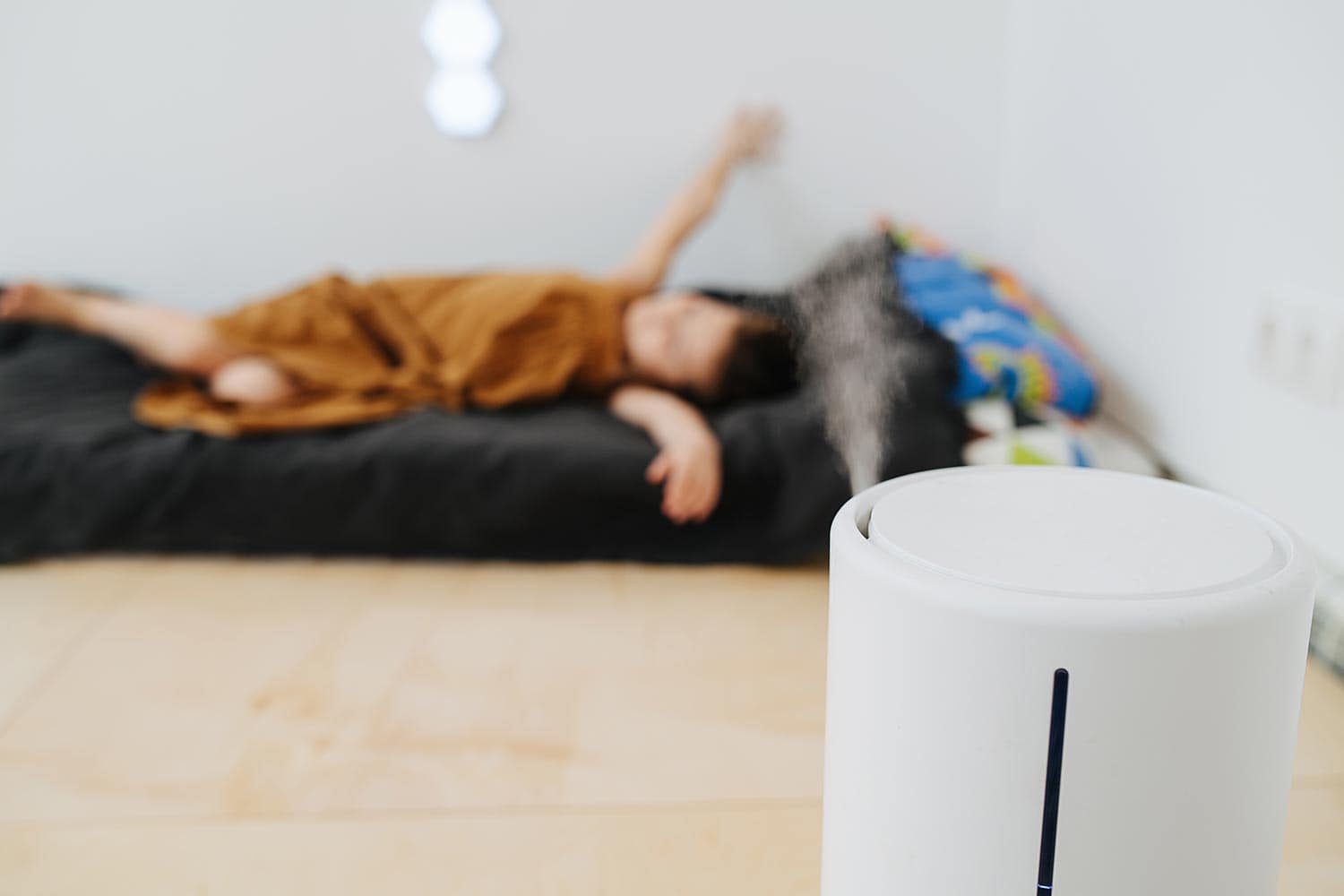
Now that we understand what benefits a humidifier brings to your baby, we will discuss where the best place to put one inside the nursery. After all, a humidifier's placement inside the room will determine whether or not it's helping the baby or exposing them to dangers.
Location
It's best to place the humidifier in the middle of the room. By doing this, you're allowing the device to circulate to work at its optimal best.
Avoid placing the humidifier in the corner of the nursery. This is not to waste the moisture it spews out and to prevent mold growth on the walls.
Proximity
A humidifier should be three to six feet away from the baby. This is to prevent the moisture that it spews out from making contact with the baby and the bed.
This not only prevents mold and bacteria from festering in your baby's bed because of the moisture, but it prevents them from getting cold as well.
To check whether or not the humidifier is too close, stand in the area where your baby sleeps. If you feel the moisture of the humidifier hit your skin, it's a sign that it's too close to the baby.
Accessibility
It's important to remember that babies are curious. If the humidifier is within reach, they would most likely reach out and grab it.
Additionally, keep the humidifier's cord away from the floor. The cable becomes a tripping hazard for an adventurous baby, especially if left out in the open.
Can A Humidifier Hurt A Baby?
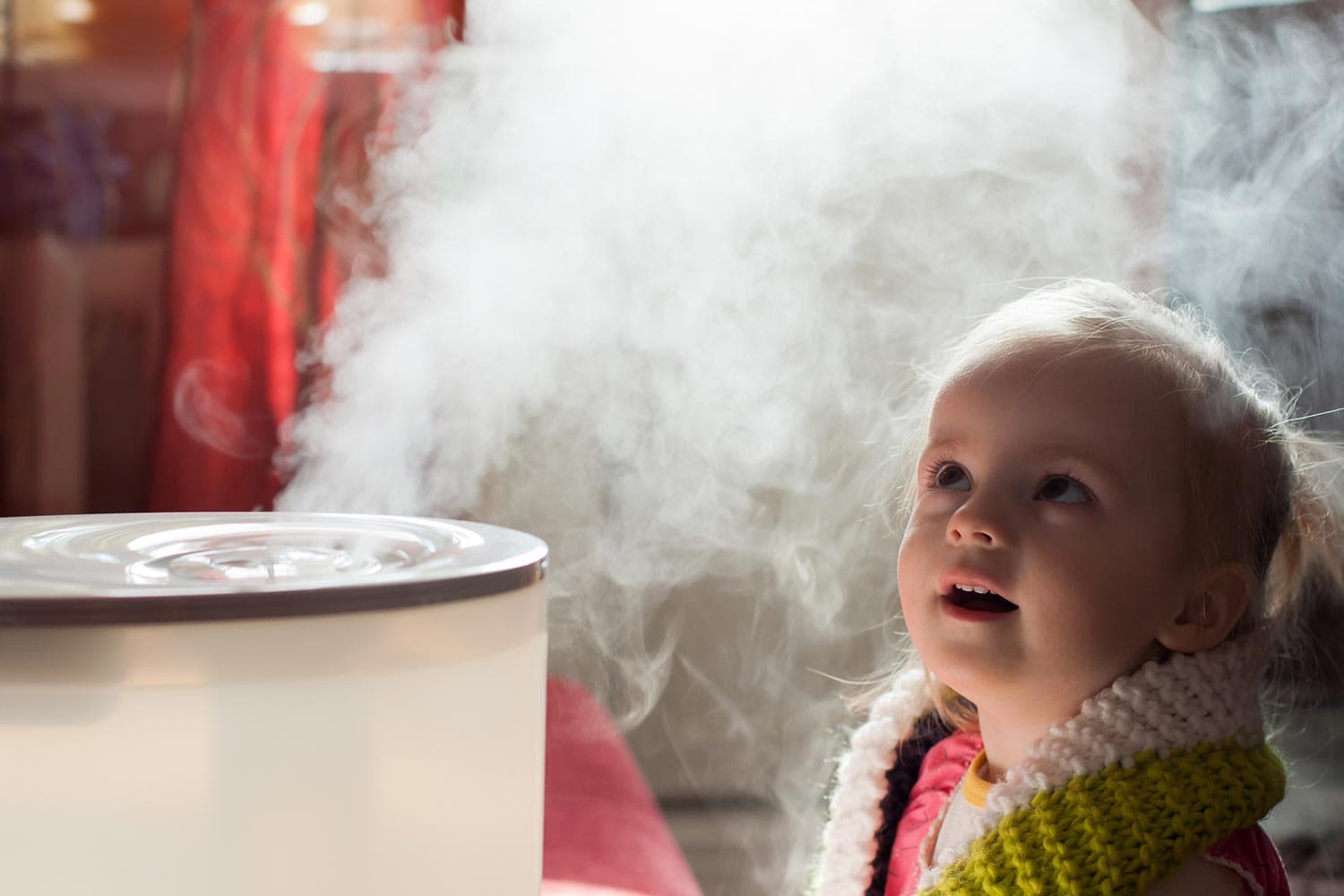
The short answer is no. A humidifier is perfectly safe for everyone inside the house, not just for a baby. Although, this mainly applies to cool mist humidifiers.
As the name implies, this humidifier spews out the cool mist. Besides the safety features that most humidifiers possess, this is widely accepted as the safest type of humidifier on the market.
Most professionals don't recommend the use of warm humidifiers. Although it provides the same benefits, this humidifier has the added risk of leaving a burn on the baby. Since it functions by using hot water, it could lead to an accident if it gets knocked over and lands all over the baby.
When you're in the market for one, always prioritize a cool mist humidifier. Not only are they much safer to have around the house, but they also provide a much more comfortable sensation for both you and your family.
Check this cool mist humidifier on Amazon.
In Closing
In sum, a humidifier should be placed at a safe and measured distance of at least three feet away from the baby. This helps increase the efficiency of a humidifier and optimizes its use. This is so that the baby can enjoy all the benefits without introducing any drawbacks.
If you like this article, consider checking the links below. They are articles that provide helpful information on topics we discussed:


